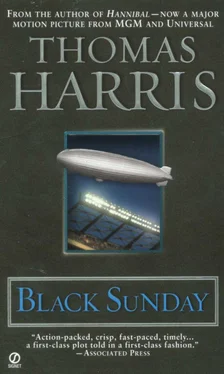July 18, 1948: Michael Lander is sitting on the back porch of his home, a mean parsonage beside the Baptist church in Willett. He is fixing a lawn mower. He makes a little money fixing lawn mowers and small appliances. Looking through the screen, he can see his father lying on a bed, listening to the radio, his hands behind his head. When he thinks of his father, Michael sees his father’s white, inept hands, the ring from Cumberland-Macon Divinity School loose behind the knuckle of his ring finger. In the South, as in many other places, the church is an institution of, by, and for women. The men tolerate it for the sake of family peace. The men of the community have no respect for the Reverend Lander because he could never make a crop, could never do anything practical. His sermons are dull and rambling, composed while the choir is singing the offertory hymn. The Reverend Lander spends much of his time writing letters to a girl he knew in high school. He never mails the letters, but locks them in a tin box in his office. The combination padlock is childishly simple. Michael has read the letters for years. For laughs.
Puberty has done a great deal for Michael Lander. At fifteen he is tall and lean. He has, by considerable effort, learned to do convincingly mediocre schoolwork. Against all odds, he has developed what appears to be an affable personality. He knows the joke about the bald-headed parrot, and he tells it well.
A freckle-faced girl two years older has helped Michael discover that he is a man. This is a tremendous relief to him after years of being told that he is a queer, with no evidence to judge himself either way.
But in the blossoming of Michael Lander, part of him has stood off to the side, cold and watchful. It is the part of him that recognized the ignorance of the classroom, that constantly replays little vignettes of grade school making the new face wince, that flashes the picture of the unlovely little scholar in front of him in moments of stress, and can open under him a dread void when his new image is threatened.
The little scholar stands at the head of a legion of hate and he knows the answer every time, and his creed is Goddamn You All. At fifteen Lander functions very well. A trained observer might notice a few things about him that hint at his feelings, but these in themselves are not suspicious. He cannot bear personal competition. He has never experienced the gradients of controlled aggression that allow most of us to survive. He cannot even endure board games; he can never gamble. Lander understands limited aggression objectively, but he cannot take part in it. Emotionally, for him there is no middle ground between a pleasant, uncompetitive atmosphere and total war to the death with the corpse defiled and burned. So he has no outlet. And he has swallowed his poison longer than most could have done.
Though he tells himself that he hates the church, Michael prays often during the day. He is convinced that assuming certain positions expedites his prayers. Touching his forehead to his knee is one of the most effective ones. When it is necessary for him to do this in public places, he must think of a ruse to keep it from being noticeable. Dropping something beneath his chair and bending to get it is a useful device. Prayers delivered in thresholds or while touching a door lock are also more effective. He prays often for persons who appear in the quick flashes of memory that sear him many times a day. Without willing it, despite his efforts to stop, he conducts internal dialogues often during his waking hours. He is having one now:
“There’s old Miss Phelps working in the teacherage yard. I wonder when she’ll retire. She’s been at that schoolhouse for a long time.
“Do you wish she was rotten with cancer?”
“No! Dear Jesus forgive me, I don’t wish she was rotten with cancer. I wish I was rotten with cancer ferst. [He touches wood.] Dear God, let me be rotten with cancer first, oh, Father.”
“Would you like to take your shotgun and blow her rotten ignorant old guts out?”
“No! No! Jesus, Father, no, I don’t. I want her to be safe and happy. She can’t help what she is. She’s a kind and good lady. She’s all right. Forgive me for saying Goddamn.”
“Would you like to stick her face in the lawn mower?”
“I wouldn‘t, I wouldn’t. Christ help me stop thinking that.”
“Fuck the Holy Ghost.”
“No! I mustn’t think it, I won’t think it, that’s the mortal sin. I can’t get forgiven. I won’t think fuck the Holy Ghost. Oh, I thought it again.”
Michael reaches behind him to touch the latch of the screen door. He touches his forehead to his knee. Then he concentrates hard on the lawn mower. He is eager to finish it. He is saving his money for a flying lesson.
From the first, Lander was attracted to machinery and he had a gift for working with machines. This did not become a passion until he discovered machines that enveloped him, that became his body. When he was inside them, he saw his actions as those of the machine, he never saw the little scholar.
The first was a Piper Cub on a grass airfield. At the controls he saw nothing of Lander, but he saw the little plane banking, stalling, diving, and its shape was his and its grace and strength were his and he could feel the wind on it and he was free.
Lander joined the Navy when he was sixteen, and he never went home again. He was not accepted for flight school the first time he applied, and he served throughout the Korean War handling ordnance on the carrier Coral Sea. A picture in his album shows him standing before the wing of a Corsair with a ground crew and a rack of fragmentation bombs. The others in the crew are smiling, and they have their arms around one another’s shoulders. Lander is not smiling. He is holding a fuse.
On June 1, 1953, Lander awoke in the enlisted men’s barracks at Lakehurst, New Jersey, shortly after dawn. He had arrived at his new assignment in the middle of the night and he needed a cold shower to wake up. Then he dressed carefully. The Navy had been good for Lander. He liked the uniform, liked the way he looked in it and the anonymity it gave him. He was competent and he was accepted. Today he would report for his new job, handling pressure-actuated depth-charge detonators being prepared for experiments in antisubmarine warfare. He was good with ordnance. Like many men with deep-seated insecurities, he loved the nomenclature of weapons.
He walked through the cool morning toward the ordnance complex, looking around curiously at all he had not seen when he arrived in darkness. There were the giant hangars that held the airships. The doors on the nearest one were opening with a rumble. Lander checked the time, then stopped on the sidewalk, watching. The nose came out slowly and then the great length of it. The airship was a ZPG-1 with a capacity of a million cubic feet of helium. Lander had never been so close to one before. Three hundred twenty-four feet of silver airship, the rising sun touching it with fire. Lander trotted across the asphalt apron. The ground crew was swarming under the airship. One of the portside engines roared and a puff of blue smoke hung in the air behind it.
Lander did not want to arm airships with depth charges. He did not want to work on them or roll them in and out of hangars. He saw only the controls.
He qualified easily for the next competitive examination for officer candidate school. Two hundred eighty enlisted men took the test on a hot July afternoon in 1953. Lander placed first. His standing in OCS won him a choice of assignments. He went to the airships.
The extension of the kinesthetic sense in controlling moving machines has never been satisfactorily explained. Some people are described as “naturals,” but the term is inadequate. Mike Hailwood, the great motorcycle racer, is a natural. So was Betty Skelton, as anyone will testify who has seen her do an outside Cuban Eight in her little biplane. Lander was a natural. At the controls of an airship, freed of himself, he was sure and decisive, pressure-proof. And while he flew, part of his mind was free to race ahead, weighing probabilities, projecting the next problem and the next.
Читать дальше












